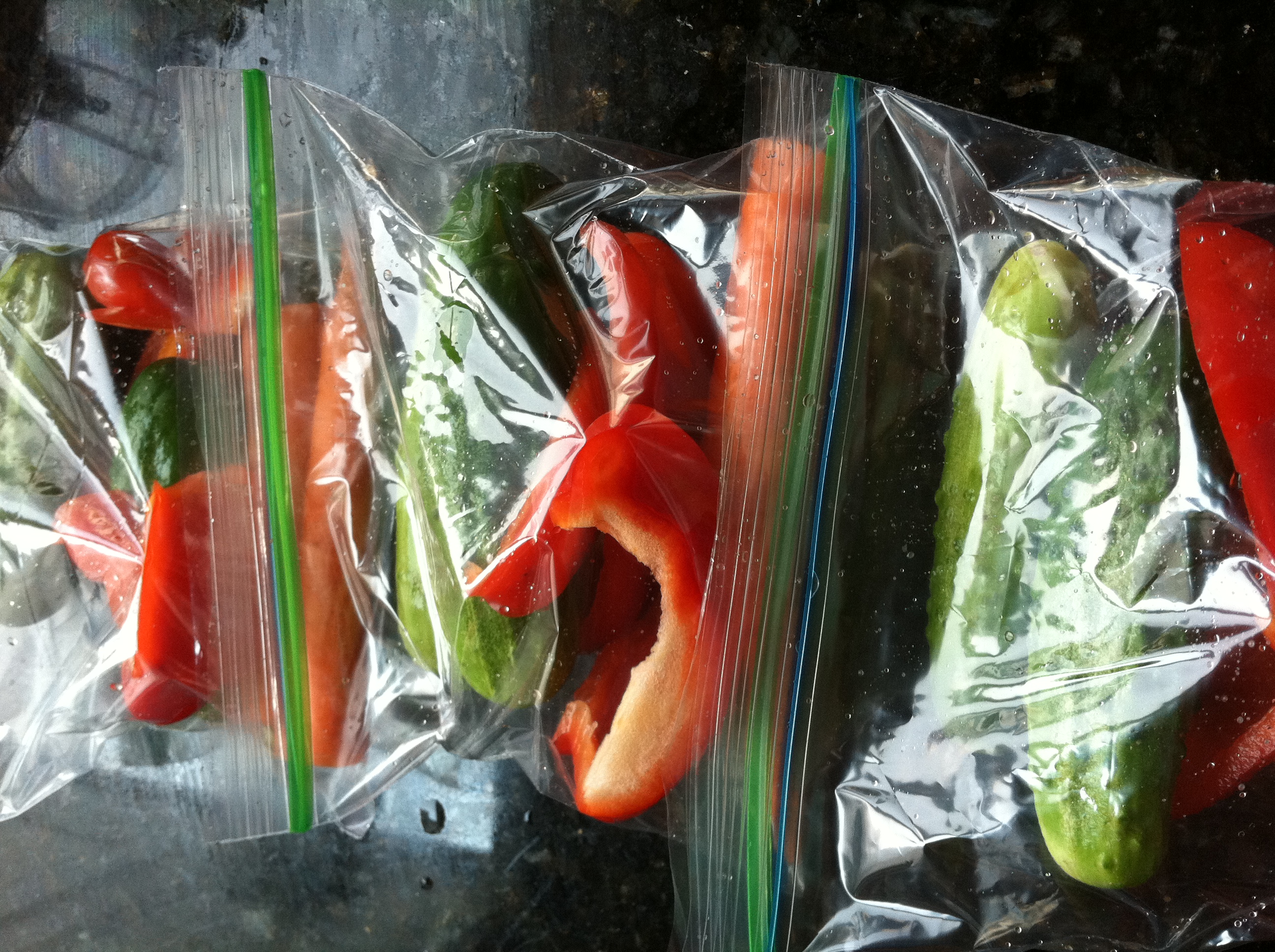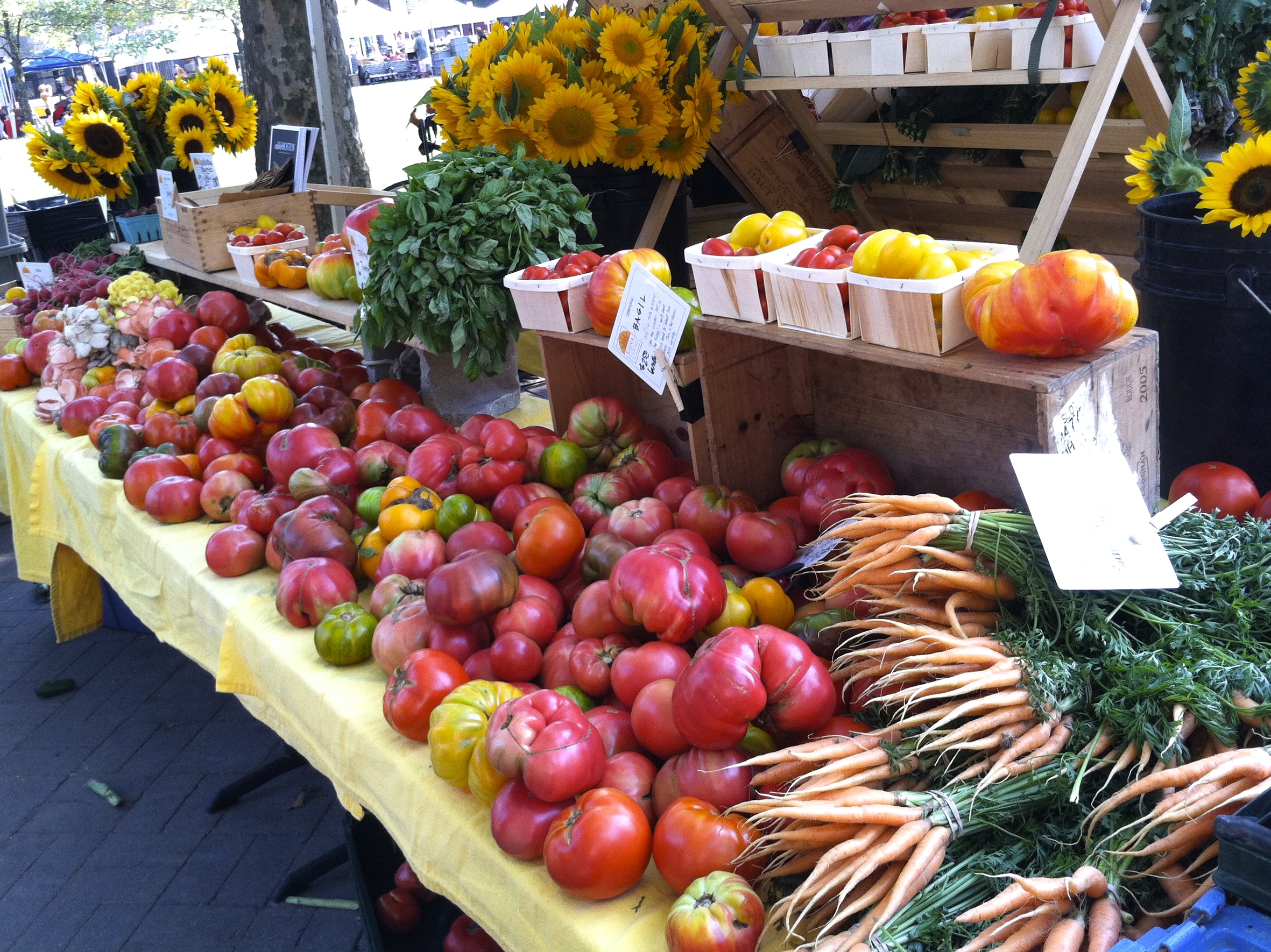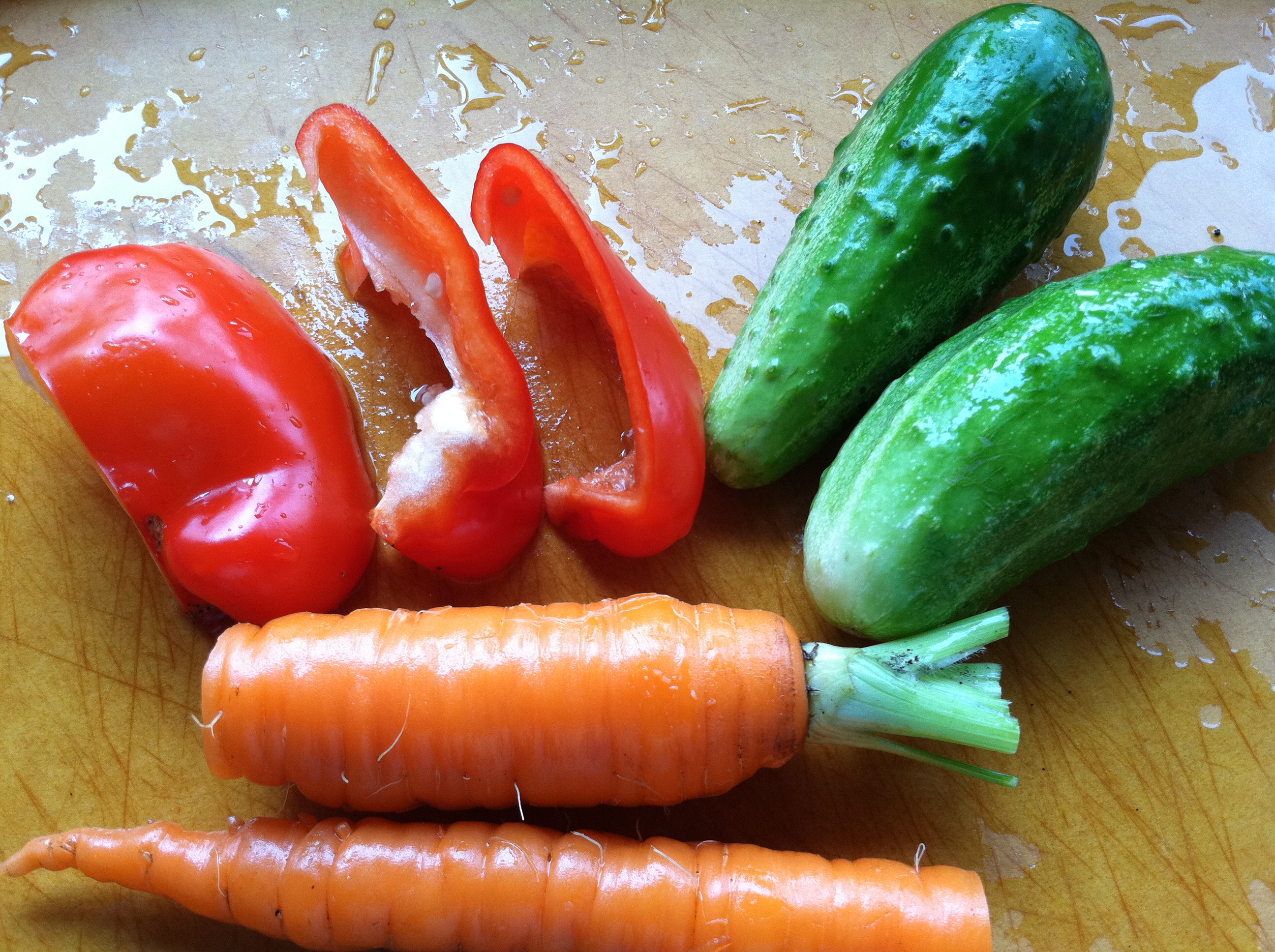Everyone knows that we should be eating more fruits and
vegetables, but sometimes it’s hard to figure out how to actually make that
happen. I’m quite focused healthy eating, and even I sometimes find that I haven’t eaten enough on a given day. One of my tricks
is packing veggie snack bags. I
know it sounds like I’m in third grade, but some old school strategies really work.
Here’s my system –
First, visit the farmers market or grocery store over the
weekend and stock up on good snacking veggies (usually carrots, cukes, bell
peppers, celery, radishes, green beans, cherry tomatoes, and/or snap peas).
Second, spend 20 minutes on Sunday evening packing your bags
for the week (I make one for each workday).
Wash and chop the veggies and organize them into small bags. One note – it’s best not to cut the cucumbers because they can get funky after a day or two.
Instead, look for small pickling cukes that can be eaten whole.

Third, pack a bag in your lunch each day and make sure you remember to eat it (my personal favorite is an afternoon snack around 3PM). The important thing to remember is that these veggies shouldn’t be replacing any fruit or vegetables you usually bring in your lunch – these are an extra serving in addition to what you are already eating.
This is a great habit to get into and in my
experience it’s much easier when you take the time on Sunday to pack your bags
for the week. It’s the perfect time of
year to get started because of the abundance of fresh, delicious
vegetables in season. Fresh carrots from
the farmers market just taste better than winter carrots from the store, so start your
habit now and you’ll be a pro by the time winter rolls around.

I’ve been finding myself using veggie bags while we’re
traveling too. It’s not quite as
specific as a bag for each day of the week, but I try to have a bag with me on
flights and long car rides so we have healthy snacks available. It’s nearly impossible to find suitable snacks at gas stations, so it really pays to plan
ahead. This strategy also work well with
small kids who always seem to be hungry when you least expect it.
Now, here’s a little info to make you feel particularly good
about eating those extra veggies:
- Vegetables are some of the most nutrient-dense foods available. They are low in fat, but very high in a range of vitamins, minerals, and antioxidants.
- Antioxidants help protect the body from oxidant stress, diseases, and cancers, as well as helping the body to boost immunity.
- Vegetables are excellent sources of both soluble and insoluble dietary fiber. Fiber in the diet helps support healthy digestion and elimination, as well as lowering “bad” LDL cholesterol.
- Vegetables have been proven to lower blood pressure, reduce the risk of heart disease and cancer, help prevent eye and digestive disorders, and have a mellowing effect on blood sugar that can help keep appetite in check (just to name a few!).

Leave a Reply